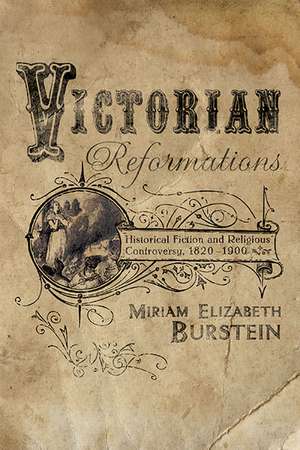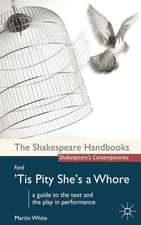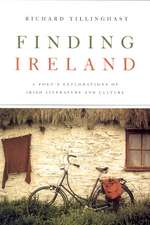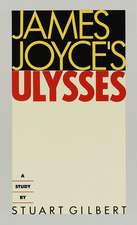Victorian Reformations – Historical Fiction and Religious Controversy, 1820–1904
Autor Miriam Elizabet Bursteinen Limba Engleză Paperback – 29 dec 2013
In Victorian Reformations: Historical Fiction and Religious Controversy, 1820-1900, Miriam Elizabeth Burstein analyzes the ways in which Christian novelists across the denominational spectrum laid claim to popular genres—most importantly, the religious historical novel—to narrate the aftershocks of 1829, the year of Catholic Emancipation. Both Protestant and Catholic popular novelists fought over the ramifications of nineteenth-century Catholic toleration for the legacy of the Reformation. But despite the vast textual range of this genre, it remains virtually unknown in literary studies. Victorian Reformations is the first book to analyze how “high” theological and historical debates over the Reformation’s significance were popularized through the increasingly profitable venue of Victorian religious fiction. By putting religious apologists and controversialists at center stage, Burstein insists that such fiction—frequently dismissed as overly simplistic or didactic—is essential for our understanding of Victorian popular theology, history, and historical novels.
Burstein reads “lost” but once exceptionally popular religious novels—for example, by Elizabeth Rundle Charles, Lady Georgiana Fullerton, and Emily Sarah Holt—against the works of such now-canonical figures as Sir Walter Scott, Charles Dickens, and George Eliot, while also drawing on material from contemporary sermons, histories, and periodicals. Burstein demonstrates how these novels, which popularized Christian visions of change for a mass readership, call into question our assumptions about the nineteenth-century historical novel. In addition, her research and her conceptual frameworks have the potential to influence broader paradigms in Victorian studies and novel criticism.
"In Victorian Reformations, Miriam Elizabeth Burstein persuasively shows how non-canonical Victorian historical novels offer essential insights into the shaping and importance of Victorian religious debates. Informative and well-argued, her book is a significant work for those who are interested in Victorian literature and Victorian religion, as well as the intersection of the two." —Carol Engelhardt Herringer, Wright State University
"Miriam Burstein examines how the Victorians began to reenvision the Protestant Reformation in an effort to confront and combat their own religious anxieties about sectarianism and secularization. She raises the very broad issues of how to write 'historical fiction,' exactly what it is, and what theoretical concerns emerge when one tries to capture the past from a distant vantage point. Most impressive to me is the way that 'theory' is brought into the discussion, but does not overwhelm the close analysis of more than three dozen literary texts." —Diane Long Hoeveler, author of Gothic Riffs: Secularizing the Uncanny in the European Imaginary, 1780-1820
"Victorian Reformations sheds fresh light on the significance of religion in historical nineteenth-century fiction. The argument is subtle but strong, buttressed by meticulous scholarship and conveyed in vigorous prose that keeps the reader focused and stimulated throughout. This readable and independent-minded study will be a boon to research on the nineteenth century, not only in the field of literature but also in those of history and religious studies." —Marianne Thormählen, Lund University
Burstein reads “lost” but once exceptionally popular religious novels—for example, by Elizabeth Rundle Charles, Lady Georgiana Fullerton, and Emily Sarah Holt—against the works of such now-canonical figures as Sir Walter Scott, Charles Dickens, and George Eliot, while also drawing on material from contemporary sermons, histories, and periodicals. Burstein demonstrates how these novels, which popularized Christian visions of change for a mass readership, call into question our assumptions about the nineteenth-century historical novel. In addition, her research and her conceptual frameworks have the potential to influence broader paradigms in Victorian studies and novel criticism.
"In Victorian Reformations, Miriam Elizabeth Burstein persuasively shows how non-canonical Victorian historical novels offer essential insights into the shaping and importance of Victorian religious debates. Informative and well-argued, her book is a significant work for those who are interested in Victorian literature and Victorian religion, as well as the intersection of the two." —Carol Engelhardt Herringer, Wright State University
"Miriam Burstein examines how the Victorians began to reenvision the Protestant Reformation in an effort to confront and combat their own religious anxieties about sectarianism and secularization. She raises the very broad issues of how to write 'historical fiction,' exactly what it is, and what theoretical concerns emerge when one tries to capture the past from a distant vantage point. Most impressive to me is the way that 'theory' is brought into the discussion, but does not overwhelm the close analysis of more than three dozen literary texts." —Diane Long Hoeveler, author of Gothic Riffs: Secularizing the Uncanny in the European Imaginary, 1780-1820
"Victorian Reformations sheds fresh light on the significance of religion in historical nineteenth-century fiction. The argument is subtle but strong, buttressed by meticulous scholarship and conveyed in vigorous prose that keeps the reader focused and stimulated throughout. This readable and independent-minded study will be a boon to research on the nineteenth century, not only in the field of literature but also in those of history and religious studies." —Marianne Thormählen, Lund University
Preț: 357.49 lei
Nou
Puncte Express: 536
Preț estimativ în valută:
68.43€ • 74.35$ • 57.52£
68.43€ • 74.35$ • 57.52£
Carte tipărită la comandă
Livrare economică 21 aprilie-05 mai
Preluare comenzi: 021 569.72.76
Specificații
ISBN-13: 9780268022389
ISBN-10: 0268022380
Pagini: 312
Dimensiuni: 152 x 229 x 18 mm
Greutate: 0.48 kg
Ediția:1st Edition
Editura: MR – University of Notre Dame Press
ISBN-10: 0268022380
Pagini: 312
Dimensiuni: 152 x 229 x 18 mm
Greutate: 0.48 kg
Ediția:1st Edition
Editura: MR – University of Notre Dame Press
Recenzii
"In Victorian Reformations, Miriam Elizabeth Burstein persuasively shows how non-canonical Victorian historical novels offer essential insights into the shaping and importance of Victorian religious debates. Informative and well-argued, her book is a significant work for those who are interested in Victorian literature and Victorian religion, as well as the intersection of the two." —Carol Engelhardt Herringer, Wright State University
"Miriam Burstein examines how the Victorians began to reenvision the Protestant Reformation in an effort to confront and combat their own religious anxieties about sectarianism and secularization. She raises the very broad issues of how to write 'historical fiction,' exactly what it is, and what theoretical concerns emerge when one tries to capture the past from a distant vantage point. Most impressive to me is the way that 'theory' is brought into the discussion, but does not overwhelm the close analysis of more than three dozen literary texts." —Diane Long Hoeveler, author of Gothic Riffs: Secularizing the Uncanny in the European Imaginary, 1780-1820
"Victorian Reformations sheds fresh light on the significance of religion in historical nineteenth-century fiction. The argument is subtle but strong, buttressed by meticulous scholarship and conveyed in vigorous prose that keeps the reader focused and stimulated throughout. This readable and independent-minded study will be a boon to research on the nineteenth century, not only in the field of literature but also in those of history and religious studies." —Marianne Thormählen, Lund University
"Miriam Elizabeth Burstein’s Victorian Reformations is that rare and splendid thing: a book in the fields of British studies and Victorian studies that is a genuinely valuable contribution for both literary scholars and historians . . . . This cleverly and fruitfully arranged discussion, which blends together canonical and noncanonical authors, deserves to become a model for aspiring literary scholars. Burstein is a professor of English, and historians will be particularly grateful for her thorough and careful attention to secondary sources in their discipline.” —Journal of British Studies
“This thorough and absorbing book studies the Protestant Reformation as it is represented and continually rewritten in 19th-century and Victorian fiction. Burstein’s research and readings are truly enlightening regarding the clashes of Victorian Protestantism with the challenge of Catholicism and the fictional reimaginings of the Reformation played in the 19th-century religious and cultural war of ideas. . . . Her prose throughout is engaging, precise, and eloquent, and her compact summary conclusions at the ends of chapters are helpful.” —Choice
“Burstein has written an engaging study of the varying ways in which the Victorians used the Protestant Reformation to pursue their religious controversies. Well-organized, well-supported by primary sources, and well-argued, it is a welcome addition to the scholarship on Victorian anti-Catholicism and religious controversy.” —The Catholic Historical Review
"Burstein's elegantly written study is the first work by a literary historian to focus on 'controversial historical novels,' that is, on novels that intervene in this public discourse by presenting fictionalized histories of the Reformation." —Horizons
“On the whole, while introducing the almost innumerable Victorian novels devoted to the Tudor Reformation from so many varying viewpoints, the author maintains a seeming impartiality.” —The Heythrop Journal
“Burstein does an admirable job of illuminating the sort of doctrinal debate—in this case, a debate over the meaning of the Protestant Reformation for British identity—that often goes unnoticed in the standard accounts of the great authors, who seem magically to transcend such concerns. . . What emerges is an intellectual history of the era demonstrating that deeply ingrained religious sentiments can still be found beneath the surface of our loftier and more cosmopolitan pretenses.” —Victorian Studies
“On the whole, while introducing the almost innumerable Victorian novels devoted to the Tudor Reformation from so many varying viewpoints, the author maintains a seeming impartiality.” —The Heythrop Journal
“Burstein does an admirable job of illuminating the sort of doctrinal debate—in this case, a debate over the meaning of the Protestant Reformation for British identity—that often goes unnoticed in the standard accounts of the great authors, who seem magically to transcend such concerns. . . What emerges is an intellectual history of the era demonstrating that deeply ingrained religious sentiments can still be found beneath the surface of our loftier and more cosmopolitan pretenses.” —Victorian Studies
“Victorian Reformations is most valuable as a contribution to the history of Victorian evangelism, Catholicism, and anti-Catholicism. For the literary historian and critic who doesn’t have these specialized concerns, its greatest interest probably lies in what it demonstrates about the influence of Sir Walter Scott, and the ways in which religious novelists worked in a tradition deriving from him but differing significantly from the much better-known secular tradition defined by Georg Lukács in The Historical Novel.” —Modern Philology
“Burstein employs a close . . . reading of forgotten, controversial, historical novels to investigate how Victorians portrayed the Reformation and used it to make sense of their own time. In all, [her] examination of religious memory deserves wide readership.” —Anglican and Episcopal History
“Burstein employs a close . . . reading of forgotten, controversial, historical novels to investigate how Victorians portrayed the Reformation and used it to make sense of their own time. In all, [her] examination of religious memory deserves wide readership.” —Anglican and Episcopal History
"Burstein's elegantly written study is the first work by a literary historian to focus on 'controversial historical novels,' that is, on novels that intervene in this public discourse by presenting fictionalized histories of the Reformation." —Horizons, vol. 41, issue 2, December 2014
Notă biografică
Miriam Elizabeth Burstein is associate professor of English at the College at Brockport, State University of New York.
Descriere
In Victorian Reformations: Historical Fiction and Religious Controversy, 1820-1900, Miriam Elizabeth Burstein analyzes the ways in which Christian novelists across the denominational spectrum laid claim to popular genres—most importantly, the religious historical novel—to narrate the aftershocks of 1829, the year of Catholic Emancipation. Both Protestant and Catholic popular novelists fought over the ramifications of nineteenth-century Catholic toleration for the legacy of the Reformation. But despite the vast textual range of this genre, it remains virtually unknown in literary studies. Victorian Reformations is the first book to analyze how “high” theological and historical debates over the Reformation’s significance were popularized through the increasingly profitable venue of Victorian religious fiction. By putting religious apologists and controversialists at center stage, Burstein insists that such fiction—frequently dismissed as overly simplistic or didactic—is essential for our understanding of Victorian popular theology, history, and historical novels.
Burstein reads “lost” but once exceptionally popular religious novels—for example, by Elizabeth Rundle Charles, Lady Georgiana Fullerton, and Emily Sarah Holt—against the works of such now-canonical figures as Sir Walter Scott, Charles Dickens, and George Eliot, while also drawing on material from contemporary sermons, histories, and periodicals. Burstein demonstrates how these novels, which popularized Christian visions of change for a mass readership, call into question our assumptions about the nineteenth-century historical novel. In addition, her research and her conceptual frameworks have the potential to influence broader paradigms in Victorian studies and novel criticism.














